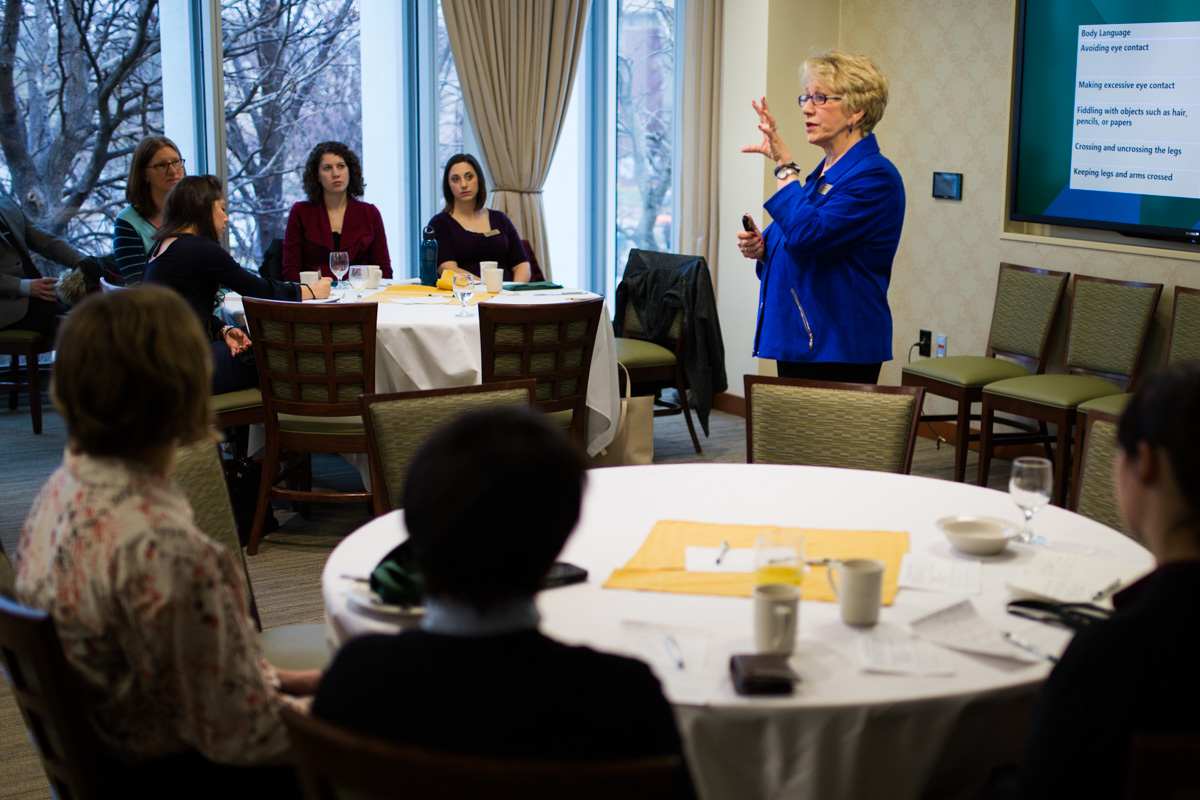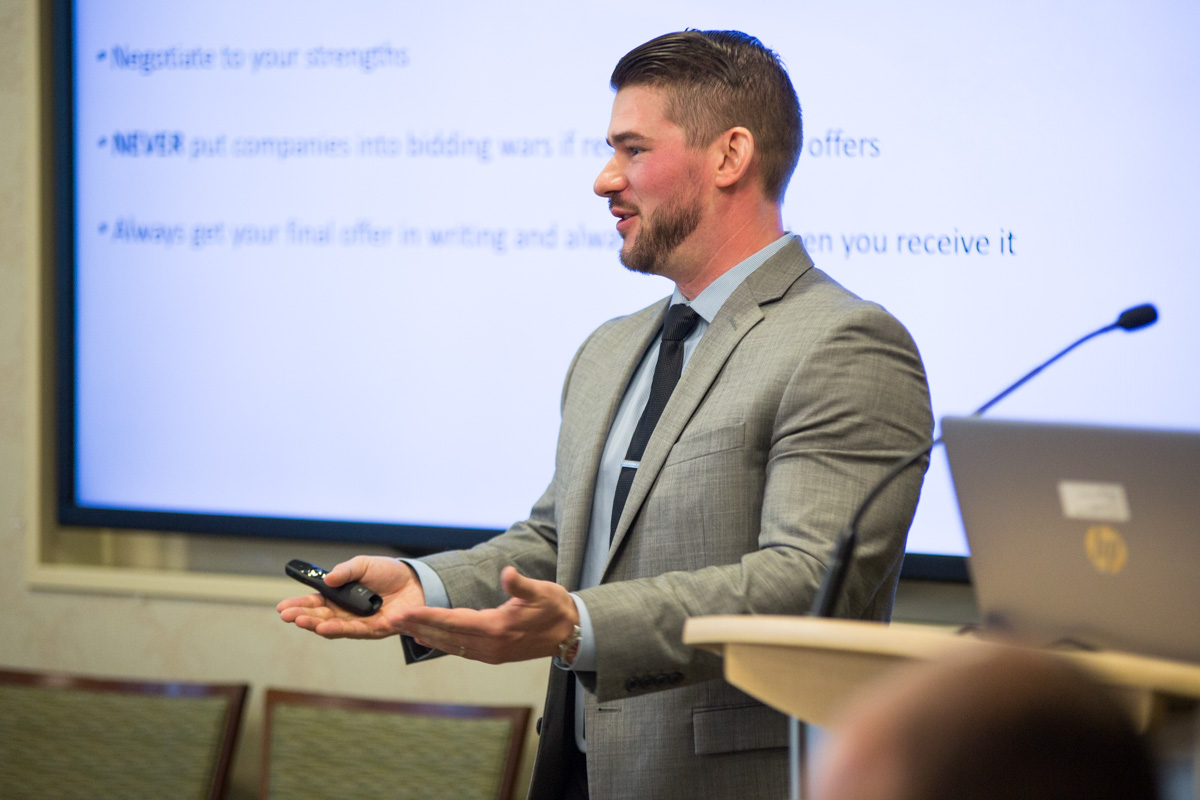
Preparing for the future
Job negotiations can be intimidating, especially for students ready to graduate soon. On March 31 the Early Career MBA leadership council hosted a well-received Job Negotiations Workshop. Dedicated to providing every opportunity for students to succeed, the Leadership Council thought this was a terrific opportunity to prepare students for the inevitable job negotiations that many will face in their near and continuing futures.
Guest speakers
The first speaker, the executive sourcing advisor of Charles Schwab, Daniel Monroe, started with advice on how to present professionalism in a job negotiation. Before searches for jobs can begin, establishing a professional presence through LinkedIn is a good place to begin.

Acting like a professional version of Facebook, LinkedIn has growing popularity among many companies. Daniel explained that LinkedIn is a channel that is used by 89% of employers to hire individuals. “You are always interviewing,” he says, so remember to make a good first impression with your profile. Once that is done and you have secured a first interview, you must do your research on the company and position.
After interviews begin and a job offer is made, negotiations can start. Daniel cited the most important quality in a negotiation is being firm in knowing what is most important to you. With that in mind, always keep your professional communications positive and concise. Whether a person is accepting or declining an offer, keeping what is most important in perspective and ensuring courteous communications are the keys to professionalism in job negotiations.
As a final speaker, Sue Schell, director of the Career Management Center and advisor for the Women in Business Association, emphasized the importance of having a plan before diving into negotiations.
Many people, especially women, find it difficult to negotiate in a formal manner on their own behalf. Fear of loss or missed opportunities can often prevent women from seeking equal and even higher opportunities. Rather than thinking of this as a painful endeavor that often sparks conflict, Sue described negotiation as “a process by which compromise and agreement is reached.” In an ideal collaboration, both parties involved can reach a satisfactory compromise.
Sue encouraged students to have four things in mind prior to undergoing job negotiations: Keep in mind what you ideally want, what is reasonable to expect, what risks you are willing to take, and at what point you are inclined to walk away. These are the most important pieces to apply in negotiations. Staying true to these four principles will help you to be happy in your career choice and make a bright and successful future for yourself.
Negotiations for success
Funded by a grant initiative through the CSU Graduate School called “Exploring Career Opportunities for Graduate Students,” this workshop attracted the attention of students across all of CSU’s colleges. No matter the degree, every career will involve negotiations. Yada “Karn” Puranasutheemongkol , Alexa Giannoni, and Riley Mika, as heads of the Early Career MBA Leadership Counsel, were eager to leave their fellow student body with something valuable before they graduate. Organizing the Negotiation Workshop turned into a great morning to share breakfast with fellow students and listen to negotiation advice from two experienced negotiators.
About the Early Career MBA
Early Career MBA students lend zest to the business of business education. They’re eager to add leadership skills to an already stellar knowledge base. This dynamic early-start MBA program brings together a rich mix of students from all disciplines who want to enter the workforce with a competitive edge. Many students enter the program with no work experience, and they graduate as tomorrow’s business leaders, managers, and entrepreneurs.
Learn more at: www.biz.colostate.edu/academics/graduate-programs/mba/early-career-mba
About the author: Nicole Turner is a current student in the DVM/MBA program at CSU.